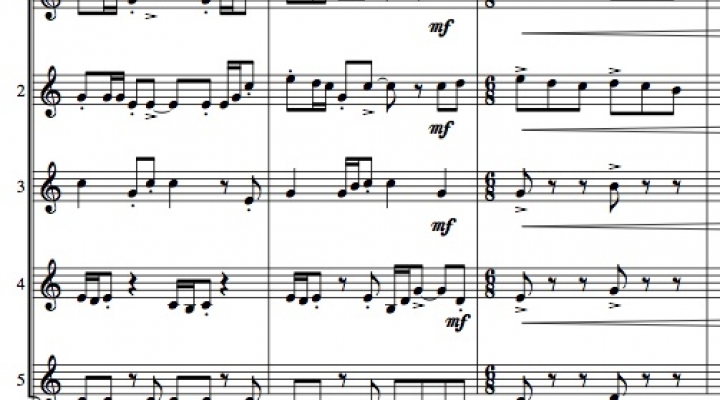Music Theory and Composition at EKU

Music Theory at EKU
Music Theory is a fascinating and diverse field of study that provides insights into the universal language that is music. What qualities give the masterworks of Bach, Mozart and Beethoven their lasting appeal? How is a great jazz ballad constructed? What are the fundamental similarities between classical, jazz and popular music? These are all questions the music theory student seeks to answer. In addition to answering these large philosophical questions, music theory has many practical applications. A greater understanding of how a piece works helps a musician to learn music faster, perform it better and teach it with more confidence.
The B.M. in Theory and Composition is an academically-oriented degree that prepares students for further studies at the graduate level.
Composition lessons begin the second semester of the undergraduate sequence. Students who are interested in composition should schedule an interview with Dr. Couvillon either before or during their first semester of study to discuss their goals and assess their experience level. Students who complete this interview process will be allowed to register for MUS 283, Beginning Composition.
In order to be formally accepted into the B.M. Theory and Composition program, students must: 1) have successfully completed their Junior Comprehensive Exams and 2) have made sufficient progress in their first three semesters of MUS 283. Students who are judged to have made insufficient progress may be allowed to take an additional semester of MUS 283 to bring their work up to an acceptable level.
Theory and Composition students take seven semesters of study in composition, where they learn to compose music in a variety of styles for instruments, voices, and electronic media. Students also attend the EKU Composers Forum and have the opportunity to have their music performed at the annual student composers recital.
Theory and Composition students will acquire fluency in computer-based notation, recording technology and keyboard skills. Composition majors whose primary instrument is not piano will be required to take two addition semesters of private keyboard study.
MUS 499, the capstone course for Theory and Composition majors combines a senior paper/presentation on an approved music theory topic with a 25-30 minute half recital of their original compositions.